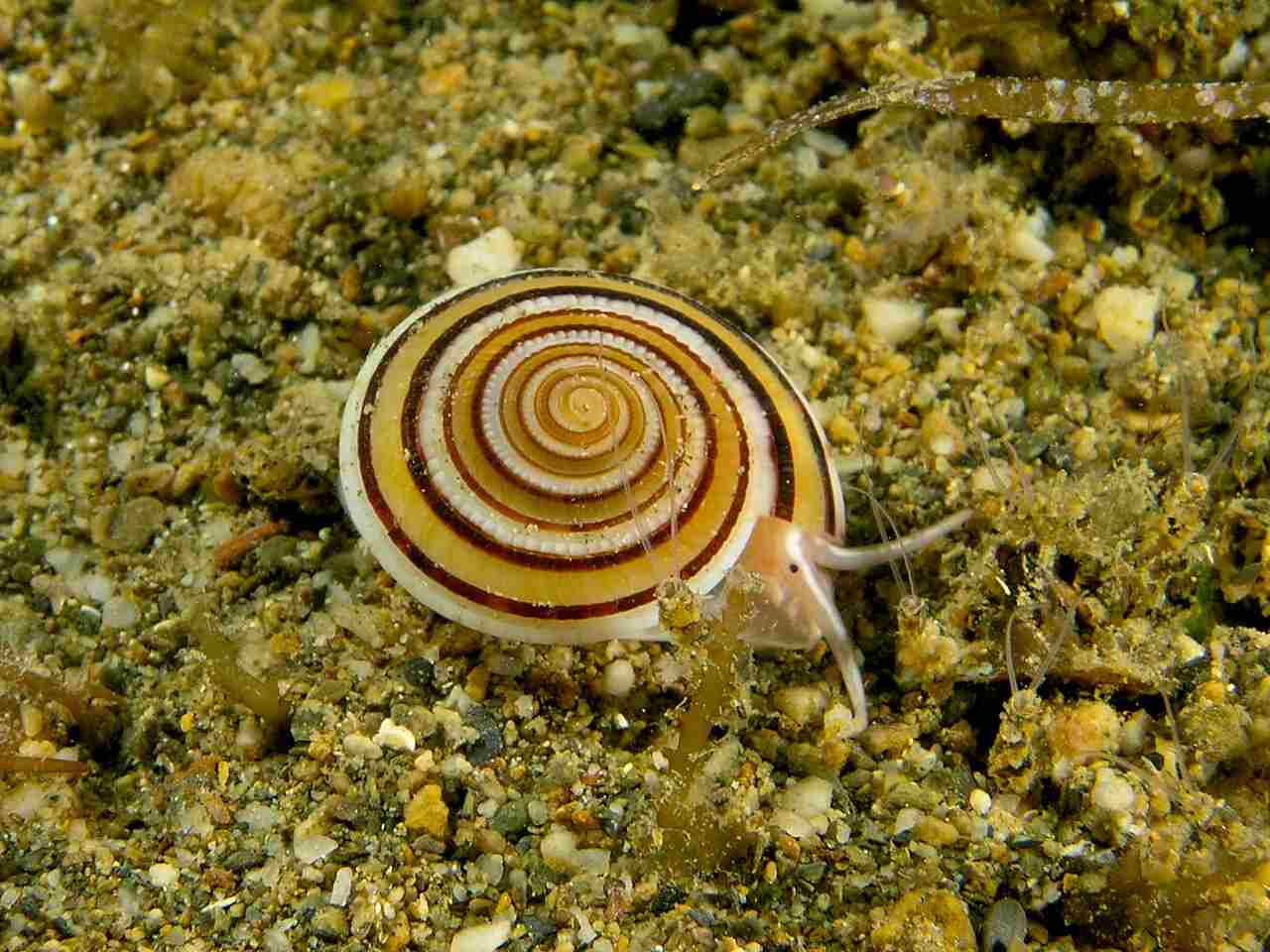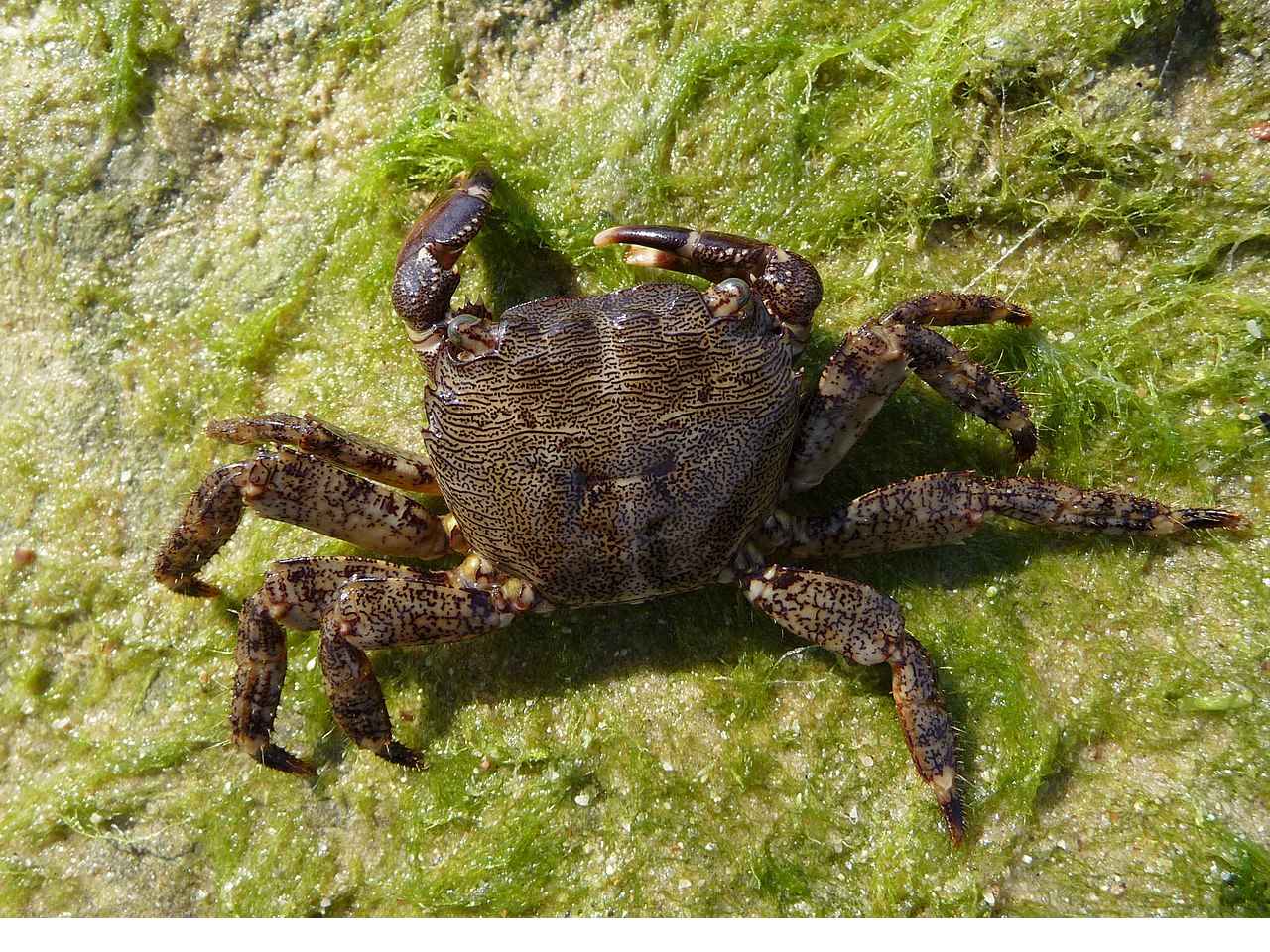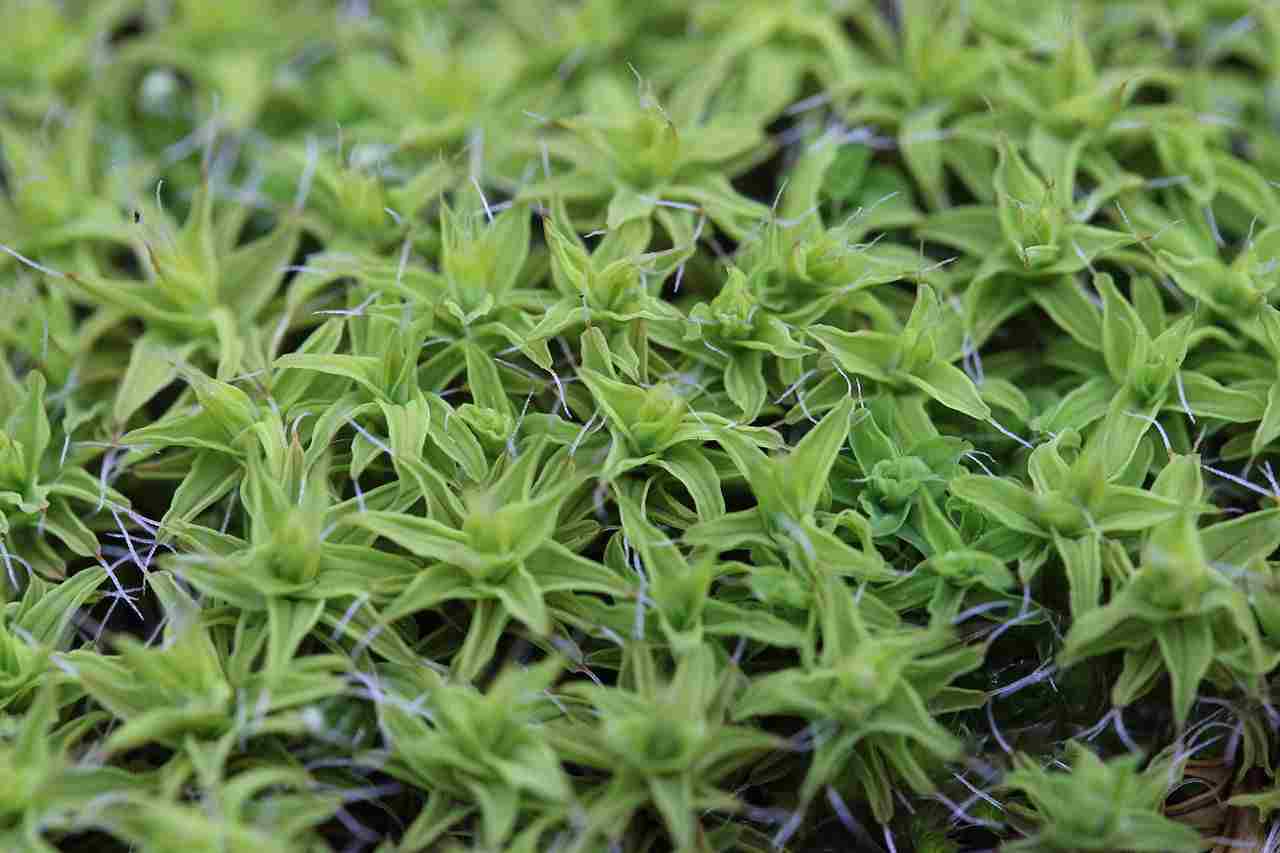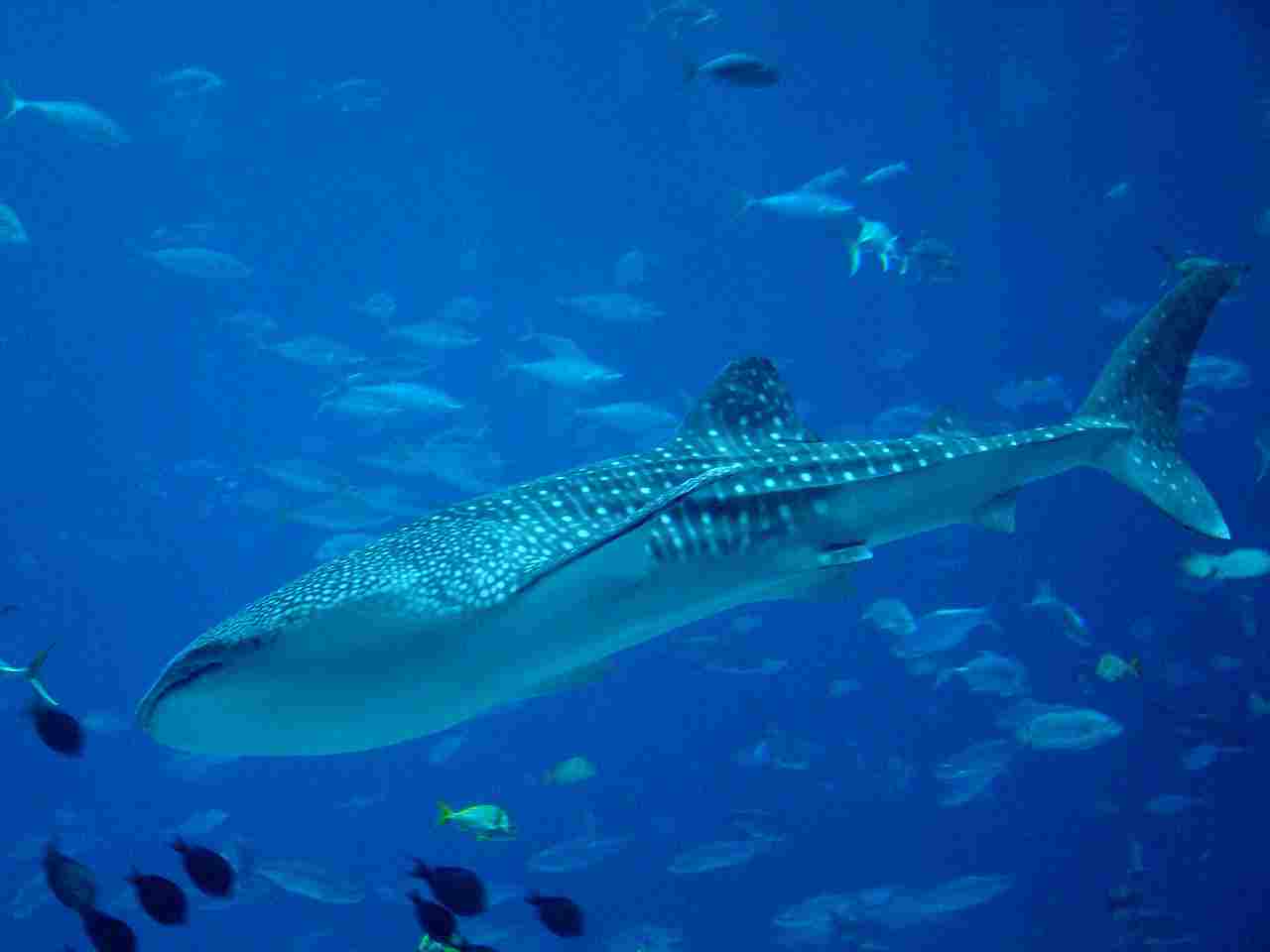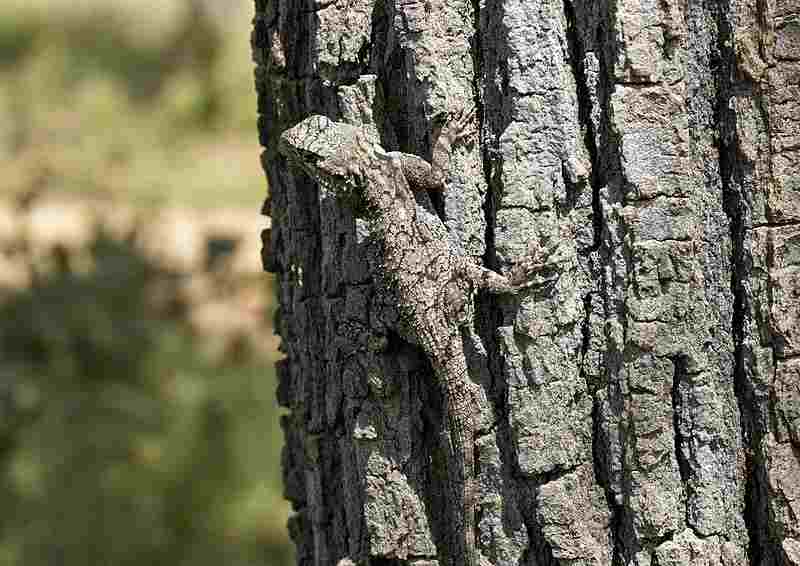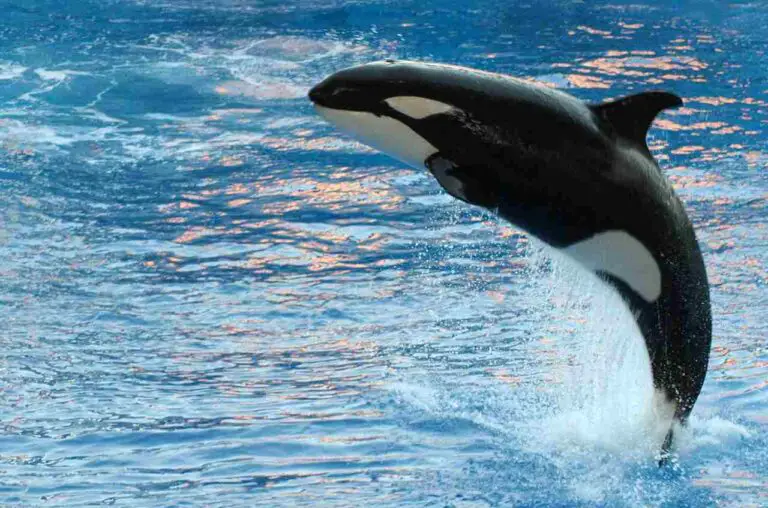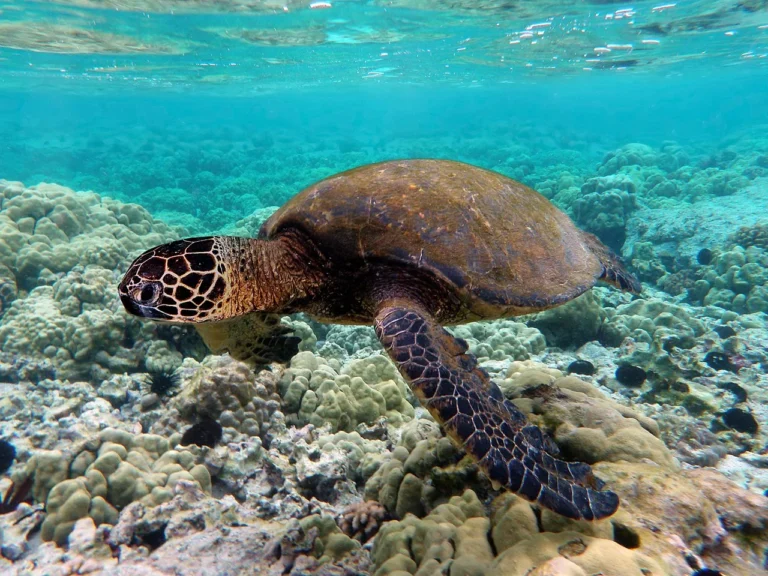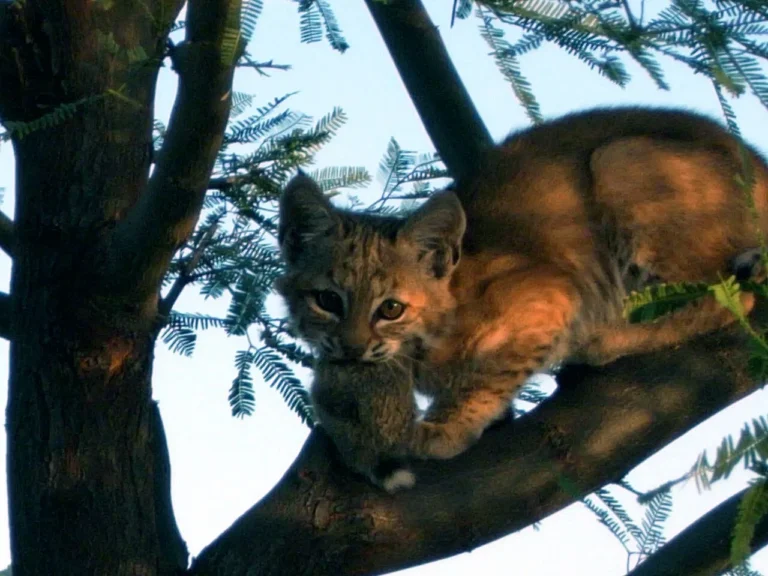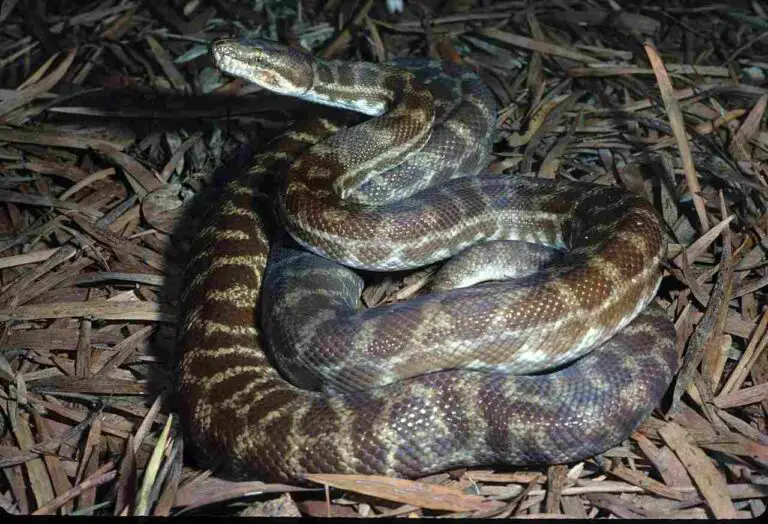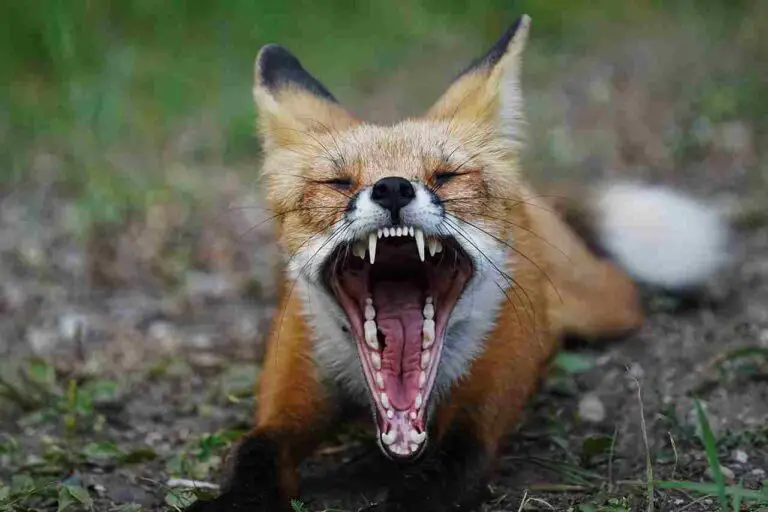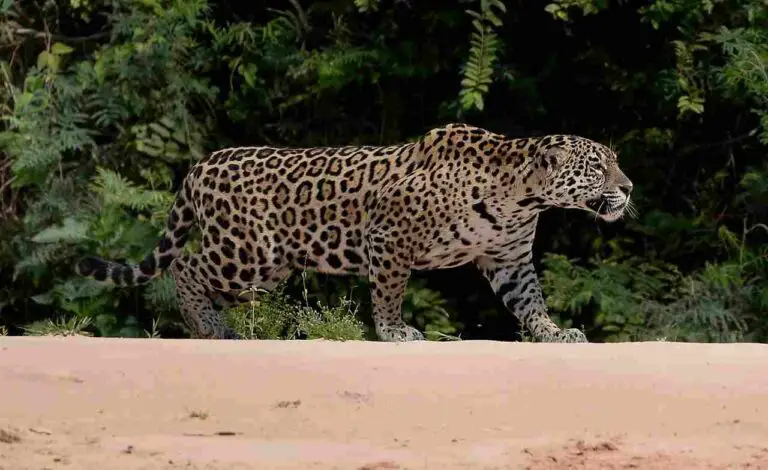What Type of Consumer is a Vulture? Role and Importance of Vultures in Ecosystems
A vulture is a unique kind of consumer in the ecosystem, which can fit into any of multiple categories and trophic levels depending on specific conditions/factors.
This article discusses the consumer role and importance of vultures in ecosystems.
Is a Vulture a Consumer?
A vulture is indeed a consumer in the ecosystem. This is because vultures cannot manufacture their own food and instead rely on materials derived from other organisms to acquire the energy and nutrients they need to survive. They are dependent on the consumption of dead animals for sustenance.
Vultures are often classified as decomposers due to their scavenging behavior and their significant contribution to the process of organic waste removal in natural ecosystems. When vultures feed on carcasses, they help break down the remains and accelerate the decomposition process. This plays a crucial role in maintaining the balance of nutrients in the ecosystem and preventing the spread of diseases from decaying carcasses.
As scavengers, vultures play a vital role in the ecosystem by cleaning up carrion and preventing the accumulation of organic waste. They are nature’s clean-up crew, efficiently disposing of animal remains that would otherwise rot and potentially pose health risks. By consuming dead animals, vultures help to recycle nutrients back into the environment, ensuring the continuous flow of energy within the ecosystem.
Furthermore, vultures’ feeding habits are characteristic of heterotrophic organisms, which rely on consuming organic matter for their energy needs. They have adapted to their role as consumers by developing specialized beaks and digestive systems that allow them to efficiently consume and process carrion. Their unique adaptations enable them to extract as much energy and nutrients as possible from their food source.
While vultures exhibit characteristics of decomposers, it is important to note that they are not saprophytic or detritivorous. Unlike true decomposers, such as bacteria and fungi, vultures do not directly break down organic matter through the process of decomposition. Instead, they rely on the already decomposed remains of animals for their sustenance.
Reasons Why a Vulture is a Consumer
1. It Cannot Manufacture Its Own Food
Vultures are classified as consumers because they cannot manufacture their own food. Unlike producers, such as plants, vultures lack chlorophyll, which is essential for photosynthesis. This means that they are unable to convert sunlight into energy and nutrients like plants do. Instead, vultures rely on obtaining their energy and nutrients from other organisms, making them dependent on consuming the remains of dead animals.
One reason why vultures are considered consumers is their reliance on scavenging. Vultures are well-known for their ability to locate and feed on carrion, or the decaying flesh of dead animals. They have highly developed senses that allow them to detect the scent of rotting carcasses from great distances. This scavenging behavior is a clear indication that vultures depend on consuming the remains of other organisms for their survival.
In addition to scavenging, vultures also play a crucial role in the ecosystem as nature’s clean-up crew. They are attracted to areas where large amounts of organic matter are present, such as carcasses. By consuming these organic remains, vultures help to prevent the spread of diseases and reduce the potential for contamination in the environment. This is particularly important in areas where the carcasses of large animals, such as elephants or buffaloes, can pose a significant health risk if left unattended.
Furthermore, vultures have specialized adaptations that enable them to consume carrion efficiently. Their strong beaks and digestive systems are designed to handle the tough skin and bones of carcasses. They can tear through the tough hide to access the nutritious flesh and can digest the bones, which are a rich source of calcium. This ability to extract nutrients from carcasses further emphasizes their role as consumers in the ecosystem.
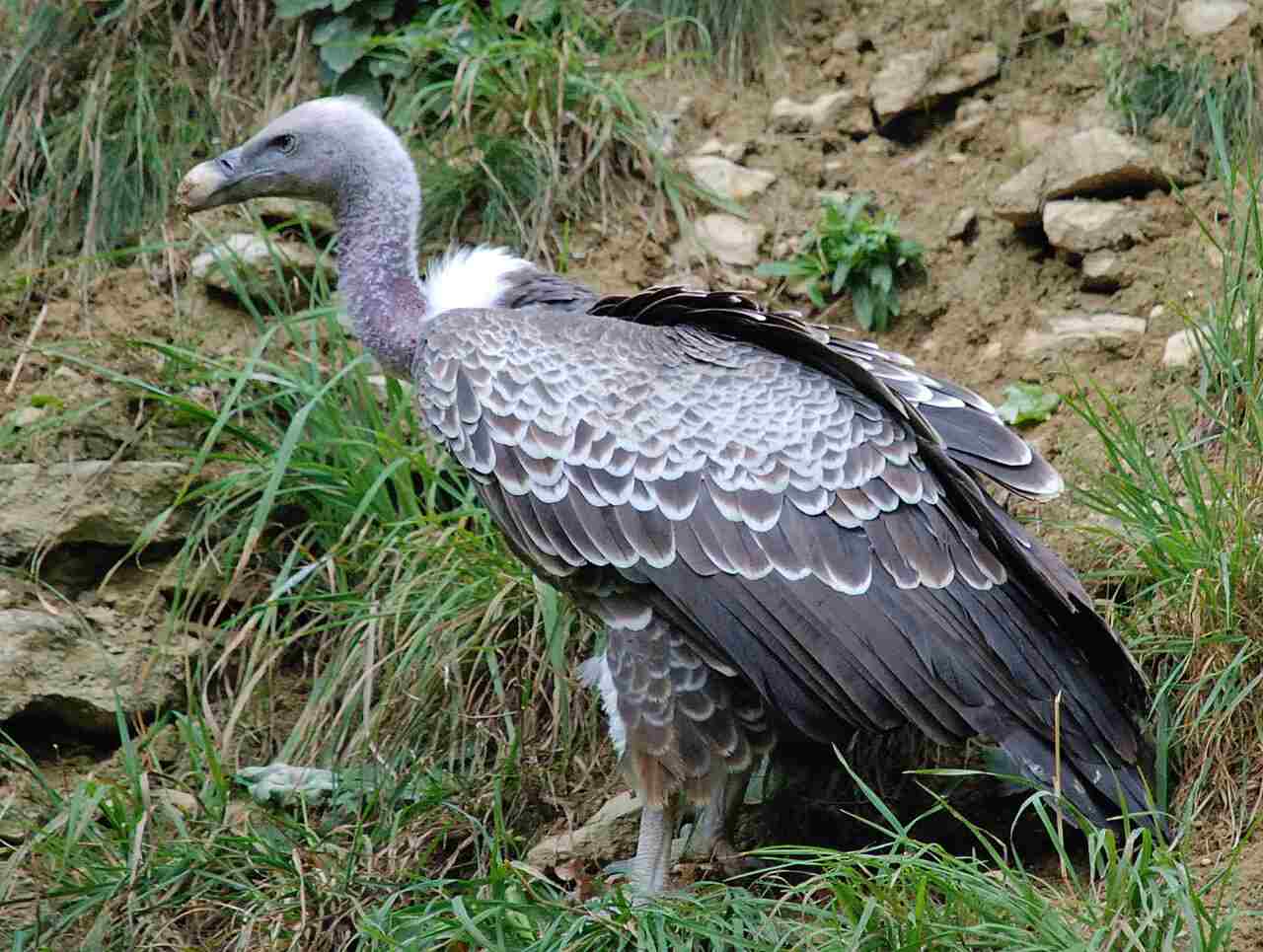
2. Vultures Derive Energy and Nutrients from Other Organisms
Vultures are classified as consumers because they derive their energy and nutrients from other organisms. This is a key reason why they are considered an important part of the ecosystem. Vultures rely on consuming the remains of dead animals, specifically carrion, to meet their nutritional needs. Their scavenging behavior allows them to efficiently locate and feed on decaying flesh.
By consuming carrion, vultures play a crucial role in the ecosystem as nature’s clean-up crew. They help to prevent the spread of diseases by removing organic waste from the environment. This is particularly important in areas where large animal carcasses can pose a health risk if left unattended. Vultures are attracted to areas with high concentrations of organic matter, such as carcasses, and their specialized adaptations, such as strong beaks and digestive systems, allow them to efficiently consume and digest carrion.
3. Heterotrophic Feeding is a Characteristic of Vultures
Heterotrophic feeding is a characteristic of vultures that further solidifies their classification as consumers in the ecosystem. Vultures rely on obtaining their energy and nutrients from other organisms, specifically through scavenging carrion. This unique feeding behavior sets them apart from other animals and highlights their important role in the environment.
One key aspect of heterotrophic feeding exhibited by vultures is their ability to locate and consume decaying flesh. Their keen sense of smell allows them to detect the scent of carrion from great distances, enabling them to efficiently find their next meal. Once a vulture has located a carcass, it uses its strong beak to tear through the tough skin and access the nutrient-rich flesh inside. This specialized feeding adaptation allows vultures to extract the maximum amount of energy and nutrients from their food source.
Another characteristic of heterotrophic feeding in vultures is their ability to digest carrion. Vultures have highly acidic stomachs that can break down and neutralize harmful bacteria and toxins present in decaying flesh. This adaptation not only allows vultures to safely consume carrion but also prevents the spread of diseases that may be present in the carcass. By efficiently digesting carrion, vultures contribute to the overall health and cleanliness of the ecosystem.
The heterotrophic feeding behavior of vultures also plays a crucial role in nutrient cycling within ecosystems. As vultures consume carrion, they break down the organic matter and release nutrients back into the environment. These nutrients can then be utilized by other organisms, such as plants, to support their growth and development. In this way, vultures act as important contributors to the nutrient cycle, ensuring the continuous flow of energy and resources throughout the ecosystem.
Is a Vulture a Tertiary Consumer?
A vulture can be classified as a tertiary consumer in cases where its food sources are dominantly comprised of the carcasses of secondary consumers like foxes, coyotes, raccoons, as well as some reptiles and amphibians.
Conditions Under Which a Vulture may be Classified as a Tertiary Consumer
1. Concentration of Secondary Consumers in Diet
A vulture can be classified as a tertiary consumer if most of its carrion comes from secondary consumers. This means that the vulture primarily feeds on animals that are themselves consumers, rather than directly consuming primary producers.
The concentration of secondary consumers in the vulture’s diet is a key factor in determining its classification as a tertiary consumer. When the majority of the vulture’s carrion consists of animals that occupy a higher trophic level in the food chain, it indicates that the vulture is positioned as a tertiary consumer. This is because the vulture is obtaining its energy and nutrients from organisms that have already consumed other organisms.
By feeding on secondary consumers, such as carnivores or omnivores, the vulture is able to derive energy and nutrients from the remains of these animals. This makes the vulture an important part of the ecosystem’s food web, as it helps to recycle nutrients and maintain the balance of energy flow.
It is worth noting that the vulture’s classification as a tertiary consumer is not solely based on the concentration of secondary consumers in its diet. Other factors, such as the absence of natural predators or threats, and the population density and species richness of carnivores in the ecosystem, also play a role in determining whether a vulture can be classified as a tertiary consumer.
Therefore, if a vulture primarily feeds on carrion from secondary consumers, it can be considered a tertiary consumer. The concentration of secondary consumers in the vulture’s diet is an important factor in determining its classification. By fulfilling this role, vultures contribute to the energy flow and nutrient cycling in ecosystems, playing a vital role in maintaining the balance of the food web.
2. Absence of Natural Predators or Threats
Another condition under which a vulture may be classified as a tertiary consumer is if it is not preyed upon or threatened by any predators. This is often the case for vultures, as they have evolved to be highly efficient scavengers and have few natural predators.
The absence of natural predators or threats allows vultures to occupy a unique ecological niche as top scavengers. Without the risk of being hunted or attacked, vultures can focus on their role as decomposers and carrion feeders, contributing to the efficient recycling of nutrients in ecosystems.
Vultures have developed several adaptations that help them avoid predation and threats. Their large size, powerful beaks, and sharp talons make them formidable opponents to potential predators. Additionally, vultures have excellent eyesight, allowing them to spot potential threats from a distance and take evasive action if necessary.
The absence of natural predators also allows vultures to dominate the scavenging niche, ensuring that they have access to carrion and organic remains. This is crucial for their survival, as vultures rely on these food sources to meet their energy and nutrient requirements. By consuming carrion, vultures prevent the spread of diseases that can be carried by decaying carcasses, further contributing to the overall health of the ecosystem.
In ecosystems where vultures are the primary scavengers, their absence can have detrimental effects. Without vultures to efficiently remove carrion, the carcasses can accumulate and attract scavengers that may not be as effective at preventing disease transmission. This can lead to an increase in disease prevalence and a disruption of the natural balance within the ecosystem.
The absence of natural predators or threats also allows vultures to establish large populations and maintain stable breeding colonies. With fewer risks to their survival, vultures can focus on reproduction and raising their young, ensuring the continuity of their species. This is particularly important for vultures, as they have relatively low reproductive rates and rely on stable populations to fulfill their ecological role.
3. Low Carnivore Population-Density and Species Richness
Another condition under which a vulture may be classified as a tertiary consumer is the low population-density and species richness of carnivores in its ecosystem. This scarcity of carnivorous organisms can lead to vultures being classified as tertiary consumers because there are few other organisms to fill this ecological position.
In ecosystems where carnivores are abundant and diverse, they typically occupy the top of the food chain as apex predators. As such, they play a crucial role in regulating the populations of herbivores and lower-level consumers. However, in some ecosystems, the population-density and species richness of carnivores may be low due to various factors such as habitat loss, hunting, or competition with humans.
When the population-density and species richness of carnivores are low, vultures may step in to fill the ecological niche of top scavengers and consumers. With fewer carnivorous organisms to compete with for carrion and organic remains, vultures can thrive and become the dominant consumers in the ecosystem.
This unique situation can have significant implications for the role and importance of vultures in ecosystems. As tertiary consumers, vultures contribute to the efficient recycling of nutrients by consuming carrion and organic remains that would otherwise go to waste. By doing so, they prevent the accumulation of decaying carcasses, which can attract disease-carrying organisms and disrupt the balance of the ecosystem.
The low population-density and species richness of carnivores also allow vultures to establish stable breeding colonies and maintain large populations. With fewer competitors and threats, vultures can focus on reproduction and raising their young, ensuring the continuity of their species and their ecological role as top scavengers.
It is important to note that the classification of vultures as tertiary consumers in ecosystems with low carnivore population-density and species richness does not diminish the importance of carnivores in other ecosystems. Carnivores play vital roles in maintaining biodiversity, regulating prey populations, and shaping the structure of ecosystems. However, in specific circumstances where carnivores are scarce, vultures can step in and fulfill the ecological functions typically associated with tertiary consumers.
Are Vultures Decomposers?
While vultures are often referred to as decomposers, they are actually scavengers rather than true decomposers. The distinction lies in the fact that scavengers, including vultures, consume organic remains but do not directly facilitate the biochemical breakdown process of these remains. Instead, the breakdown of organic matter occurs internally through the process of digestion.
However, it is worth noting that vultures do play a crucial role in the removal of organic remains from the environment through their scavenging behavior. This is similar to the core function of typical decomposers such as bacteria and fungi. By feeding on carrion, vultures contribute to the efficient recycling of nutrients and prevent the accumulation of decaying carcasses.
In this sense, vultures can be seen as indirect facilitators of decomposition. While they do not actively break down organic matter themselves, their scavenging behavior helps to initiate the decomposition process by removing carrion from the environment. This not only prevents the spread of disease but also ensures the efficient cycling of nutrients within ecosystems.
So, while vultures are not true decomposers, they do play a vital role in the decomposition process by acting as scavengers and contributing to the removal of organic remains from the environment.
Reason for Classifying Vultures as Decomposers
1. They Contribute to Organic Waste Removal in Ecosystems
Vultures play a crucial role in ecosystems by contributing to the removal of organic waste. This is one of the reasons why they are sometimes classified as decomposers.
When an animal dies in the wild, its body starts to decompose. This decomposition process involves the breakdown of organic matter by bacteria, fungi, and other microorganisms. Vultures, with their unique feeding habits, accelerate this process by consuming carrion, or dead animal carcasses.
By consuming carrion, vultures prevent the buildup of organic waste in the environment. They act as nature’s clean-up crew, efficiently removing carcasses that would otherwise take much longer to decompose. This helps to maintain the overall health and balance of ecosystems.
Vultures have specialized adaptations that allow them to consume carrion without getting sick. Their digestive systems are highly acidic, which helps to kill off harmful bacteria and pathogens that may be present in the carcasses they consume. This not only protects the vultures themselves from getting sick but also prevents the spread of diseases to other animals in the ecosystem.
In addition to their role in organic waste removal, vultures also provide other important ecological services. For example, their scavenging behavior helps to control the spread of diseases by removing carcasses that could potentially harbor pathogens. This is particularly important in areas where diseases like anthrax and botulism are prevalent.
Furthermore, vultures’ feeding habits help to prevent the spread of diseases among scavengers themselves. By quickly consuming carcasses, vultures reduce the competition for food among other scavengers, minimizing the risk of aggressive encounters and the transmission of diseases.
The presence of vultures in an ecosystem also has indirect benefits. Their scavenging behavior attracts other scavengers, such as jackals and hyenas, which rely on vultures to locate food sources. This creates a cascade effect, where the removal of carrion by vultures supports the survival and well-being of other species in the ecosystem.
2. Vultures’ Food Consists of Organic Remains
Vultures’ food consists of organic remains, which is one of the reasons why they are sometimes classified as decomposers. When an animal dies in the wild, its body undergoes decomposition, a process in which organic matter is broken down by bacteria, fungi, and other microorganisms. Vultures play a crucial role in this process by consuming carrion, or dead animal carcasses.
By feeding on carrion, vultures contribute to the breakdown of organic matter and the recycling of nutrients back into the ecosystem. They are able to efficiently consume carcasses, including the bones and other tough tissues that other scavengers may not be able to digest. This helps to accelerate the decomposition process and prevent the buildup of organic waste in the environment.
Vultures have specialized adaptations that allow them to consume carrion without getting sick. Their digestive systems are highly acidic, which helps to kill off harmful bacteria and pathogens that may be present in the carcasses they consume. This not only protects the vultures themselves from getting sick but also prevents the spread of diseases to other animals in the ecosystem.
In addition to their role in organic waste removal, vultures provide other important ecological services through their feeding habits. By consuming carrion, they help to control the spread of diseases by removing carcasses that could potentially harbor pathogens. This is particularly important in areas where diseases like anthrax and botulism are prevalent.
Furthermore, vultures’ feeding behavior helps to prevent the spread of diseases among scavengers themselves. By quickly consuming carcasses, vultures reduce the competition for food among other scavengers, minimizing the risk of aggressive encounters and the transmission of diseases.
The presence of vultures in an ecosystem also has indirect benefits. Their scavenging behavior attracts other scavengers, such as jackals and hyenas, which rely on vultures to locate food sources. This creates a cascade effect, where the removal of carrion by vultures supports the survival and well-being of other species in the ecosystem.
Why Vultures are NOT Decomposers
1. They are Neither Saprophytic Nor Detritivorous
Vultures are neither saprophytic nor detritivorous, but rather carnivorous scavengers. This is a key reason why vultures are not classified as decomposers. Unlike saprophytes, which obtain nutrients from dead organic matter, and detritivores, which feed on decomposing organic material, vultures rely on consuming the flesh of dead animals.
As carnivorous scavengers, vultures play a crucial role in the ecosystem by efficiently removing carcasses and preventing the spread of diseases. They have specialized adaptations, such as strong beaks and digestive systems, that allow them to consume decaying flesh without being affected by harmful bacteria or toxins.
By feeding on carrion, vultures contribute to the organic waste removal process in ecosystems. They help to break down the remains of dead animals, returning nutrients back into the environment. This scavenging behavior also helps to maintain the balance of the food chain by preventing the accumulation of carcasses and reducing the risk of disease transmission.
2. Vultures are Not Behind the Decomposition Process Itself
Vultures are not behind the decomposition process itself. While they play a crucial role in the ecosystem by efficiently removing carcasses, they do not actively contribute to the breakdown of biomass. This is because vultures do not secrete any enzymes that aid in the decomposition process.
Unlike decomposers such as bacteria and fungi, which break down organic matter through the secretion of enzymes, vultures rely on their scavenging behavior to obtain nutrients. They feed on the flesh of dead animals, consuming the non-granular masses of organic matter. However, they do not possess the ability to break down the carcass at a molecular level.
The absence of enzyme secretion is a key reason why vultures are not classified as decomposers. Decomposers, such as bacteria and fungi, are responsible for the initial breakdown of organic matter into simpler compounds. They secrete enzymes that break down complex molecules, such as proteins and carbohydrates, into smaller molecules that can be absorbed by other organisms.
Vultures, on the other hand, rely on their strong beaks and digestive systems to consume the flesh of dead animals. They have adaptations that allow them to tolerate and digest decaying flesh without being affected by harmful bacteria or toxins. However, they do not actively participate in the decomposition process itself.
Instead, vultures contribute to the organic waste removal process in ecosystems. By consuming carcasses, they help to prevent the accumulation of dead animals and reduce the risk of disease transmission. Their scavenging behavior helps to maintain the balance of the food chain by efficiently removing carcasses from the environment.
While vultures are not decomposers, their role as scavengers is essential for ecosystem functioning. They provide a valuable service by efficiently removing carcasses, which helps to prevent the spread of diseases and maintain the overall health of the ecosystem.
Are Vultures Detritivores?
Vultures are not classified as detritivores because their feeding habits differ from those of detritivorous organisms. Detritivores typically consume detrital or granular organic materials, such as decaying plant matter or dead leaves. In contrast, vultures primarily feed on tissues and other non-granular masses of organic matter from dead animals.
Detritivores are commonly found among invertebrate organisms, including millipedes, isopods, termites, ants, shrimp, and some crabs. These organisms have specialized adaptations that allow them to extract nutrients from biogenic detritus in sediments or other granular media. They play a crucial role in the decomposition process by breaking down organic matter into simpler compounds.
Vultures, on the other hand, have a different feeding strategy. They are scavengers that rely on carcasses as their primary food source. When a vulture comes across a dead animal, it uses its strong beak to tear through the flesh and consume the non-granular masses of organic matter. This behavior distinguishes vultures from detritivores, as they do not actively feed on granular organic materials found in detritus.
The distinction between vultures and detritivores lies in their feeding preferences and adaptations. While detritivores have evolved to extract nutrients from granular organic matter, vultures have specialized adaptations for consuming the flesh of dead animals. These adaptations include powerful beaks and digestive systems that can tolerate and digest decaying flesh without being affected by harmful bacteria or toxins.
Although vultures are not detritivores, they still play a crucial role in ecosystems. By consuming carcasses, they contribute to the organic waste removal process. This helps prevent the accumulation of dead animals and reduces the risk of disease transmission. Vultures are efficient scavengers, and their feeding behavior helps maintain the balance of the food chain by efficiently removing carcasses from the environment.
Is a Vulture a Carnivore?
Yes, a vulture is indeed a carnivore. However, it is important to note that vultures are non-predatory carnivores, as they do not typically hunt or kill animals themselves. Instead, they primarily feed on the remains of dead animals, making them scavenging carnivores or carnivorous scavengers.
Vultures are classified as carnivores because their diet consists mainly of flesh. When a vulture comes across a carcass, it uses its strong beak to tear through the flesh and consume the meat. This feeding behavior is characteristic of carnivorous animals that rely on animal biomass for their sustenance.
While vultures do not actively hunt or kill animals, they play a crucial role in ecosystems as scavengers. They are highly efficient at locating and consuming carrion, which helps to prevent the spread of disease and maintain the balance of the food chain. By feeding on the remains of dead animals, vultures contribute to the natural recycling of nutrients in the environment.
Vultures have evolved specialized adaptations that allow them to thrive as scavenging carnivores. Their beaks are designed to tear through tough flesh, and their digestive systems are capable of processing decaying meat without being affected by harmful bacteria or toxins. These adaptations enable vultures to efficiently consume and derive nutrients from carcasses.
It is worth noting that while vultures are primarily carnivorous, some species may occasionally consume small amounts of plant matter. For example, the turkey vulture has been observed feeding on fruits or vegetation, but this behavior is rare and usually occurs within the context of consuming animal biomass. The vast majority of a vulture’s diet, however, consists of animal remains.
Are Vultures Omnivores?
When it comes to vultures, the question of whether they are omnivores or not is an interesting one. Typically, vultures are not considered omnivores. Their diet primarily consists of animal biomass, specifically the remains of dead animals. However, it is important to note that vultures are versatile and opportunistic feeders, which means they may occasionally consume small amounts of plant matter.
While most vultures primarily feed on animal biomass, there are some exceptions. The turkey vulture, for example, has been observed consuming fruits or vegetation on rare occasions. However, it is important to note that this behavior is not common and usually occurs within the context of consuming animal remains. The vast majority of a vulture’s diet still consists of animal biomass.
Vultures have evolved to be highly efficient at locating and consuming carrion, or the remains of dead animals. Their strong beaks are designed to tear through tough flesh, allowing them to access the meat. Additionally, their digestive systems are capable of processing decaying meat without being affected by harmful bacteria or toxins. These adaptations make vultures well-suited for their role as scavengers.
The fact that vultures primarily feed on animal biomass is significant for their role in ecosystems. As scavengers, vultures play a crucial role in maintaining the balance of the food chain and preventing the spread of disease. By consuming the remains of dead animals, they help to recycle nutrients back into the environment. This process is essential for the overall health and functioning of ecosystems.
FAQs
1. Is a Vulture Herbivore or Carnivore?
A vulture is a carnivore because it consumes animal tissues or flesh. They are specialized scavengers that primarily feed on carrion, which is the decaying flesh of dead animals. Vultures have unique adaptations that allow them to thrive on this diet, such as their strong beaks and digestive systems.
Vultures play a crucial role in the ecosystem as nature’s clean-up crew. They help prevent the spread of diseases by consuming carcasses that would otherwise rot and attract bacteria. Their scavenging behavior also helps to recycle nutrients back into the environment.
Vultures have a keen sense of smell, which enables them to locate carrion from great distances. Once they find a carcass, they use their powerful beaks to tear through tough skin and access the meat inside. Their digestive system is highly acidic, allowing them to safely consume bacteria-laden meat without getting sick.
While vultures primarily feed on carrion, they are opportunistic feeders and will also consume live prey if the opportunity arises. This behavior is more commonly observed in certain species of vultures, such as the African White-backed Vulture. However, it is important to note that vultures primarily rely on carrion as their main source of food.
2. Is a Vulture a Producer, Consumer or Decomposer?
A vulture is a consumer in the food chain. It does not fall into the category of a producer or a decomposer.
As a consumer, a vulture relies on consuming other organisms for its source of energy and nutrients. Unlike producers, such as plants, vultures do not have the ability to manufacture their own food through photosynthesis. Instead, they obtain their nourishment by feeding on the flesh of dead animals. This makes them a vital part of the ecosystem’s clean-up crew, as they help to recycle nutrients back into the environment.
On the other hand, vultures are not decomposers either. Decomposers are organisms that break down dead organic matter, such as plants and animals, into simpler substances. They play a crucial role in the decomposition process by releasing nutrients back into the soil. However, vultures do not possess the characteristics of decomposers. They are neither saprophytic, which refers to organisms that obtain nutrients from decaying organic matter, nor detritivorous, which refers to organisms that feed on dead plant or animal material.
3. Are Vultures Omnivores?
Vultures are not omnivores in general. While some species of vultures may occasionally consume plant matter, their diet primarily consists of carrion, or the flesh of dead animals. This makes them more accurately classified as scavengers or carnivores.
Vultures have specialized adaptations that allow them to thrive on a diet of carrion. Their beaks are designed to tear through tough animal hides, and their digestive systems are highly acidic, allowing them to safely consume decaying flesh that would be toxic to other animals. These adaptations make vultures well-suited for their role as nature’s clean-up crew, efficiently disposing of carcasses and preventing the spread of disease.
4. What Kind of Organism is a Vulture?
A vulture is a large bird with carnivorous scavenging behavior. It primarily feeds on carrion, or the flesh of dead animals. But what kind of organism is a vulture?
Vultures are classified as carnivores. They belong to the order Accipitriformes, which includes birds of prey such as eagles and hawks. While some species of vultures may occasionally consume plant matter, their diet primarily consists of meat. This makes them specialized scavengers in the animal kingdom.
With their sharp beaks and powerful talons, vultures are well-equipped to tear through tough animal hides and access the nutritious flesh inside. Their digestive systems are also uniquely adapted to handle the challenges of consuming decaying flesh. Vultures have highly acidic stomachs that can neutralize harmful bacteria and toxins, allowing them to safely consume carrion that would be toxic to other animals.
Vultures play a crucial role in the ecosystem as nature’s clean-up crew. By feeding on carcasses, they help prevent the spread of diseases that can arise from decaying animal matter. Their scavenging behavior helps maintain the balance of the food chain by efficiently disposing of dead animals and recycling nutrients back into the environment.
5. Is a Vulture a Carnivore or Omnivore?
A vulture is a carnivore, meaning it primarily consumes meat. With their sharp beaks and powerful talons, vultures are well-equipped to tear through tough animal hides and access the nutritious flesh inside. They belong to the order Accipitriformes, which includes other birds of prey such as eagles and hawks. While some species of vultures may occasionally consume plant matter, their diet primarily consists of meat.
Vultures play a crucial role in the ecosystem as nature’s clean-up crew. They are specialized scavengers that feed on carrion, or the flesh of dead animals. By feeding on carcasses, they help prevent the spread of diseases that can arise from decaying animal matter. Their scavenging behavior helps maintain the balance of the food chain by efficiently disposing of dead animals and recycling nutrients back into the environment.
Vultures have highly acidic stomachs that can neutralize harmful bacteria and toxins, allowing them to safely consume carrion that would be toxic to other animals. This unique adaptation enables them to thrive on a diet of decaying flesh. Their digestive systems are specifically designed to handle the challenges of consuming decaying meat.
6. What Does a Vulture Eat?
Vultures are known for their unique feeding habits, primarily consuming the tissues of dead organisms. As scavengers, they play a vital role in the ecosystem by feeding on carrion, or the flesh of dead animals. This behavior helps to maintain the balance of the food chain and prevent the spread of diseases that can arise from decaying animal matter.
Vultures have a highly specialized diet that consists mainly of carcasses. They are equipped with sharp beaks and powerful talons, which allow them to tear through tough animal hides and access the nutritious flesh inside. Their digestive systems are specifically adapted to handle the challenges of consuming decaying meat.
7. What Type of Consumer is a Vulture in the Food Chain
A vulture is a carnivorous scavenger that plays a crucial role in the food chain. In terms of its position as a consumer, a vulture is typically classified as a secondary consumer. However, depending on the available food sources, it can also be considered a tertiary consumer.
As a scavenger, vultures primarily feed on the remains of dead animals. They do not actively hunt or prey on live organisms, making them non-predatory consumers. Instead, they rely on their keen sense of smell to locate carrion, or the flesh of dead animals. This behavior allows them to efficiently recycle nutrients from decaying organic matter.
In the food chain, vultures occupy an important niche as they consume the tissues of dead organisms. By doing so, they help to maintain the balance of the ecosystem and prevent the spread of diseases that can arise from decaying animal matter. Their feeding habits also contribute to the decomposition process, aiding in the recycling of nutrients back into the environment.
While vultures are primarily secondary consumers, their position in the food chain can shift to tertiary consumer status depending on the availability of food sources. If vultures predominantly feed on the remains of other secondary consumers, such as skunks or raccoons, they can be classified as tertiary consumers.
8. Is a Vulture a Tertiary Consumer
A vulture can indeed be classified as a tertiary consumer if it heavily feeds on the remains of secondary consumers such as skunks or raccoons. As a scavenger, vultures play a vital role in the ecosystem by consuming the tissues of dead organisms. While they are primarily considered secondary consumers, their position in the food chain can shift depending on the availability of food sources.
In terms of the food chain, tertiary consumers are organisms that feed on other secondary consumers. If vultures predominantly rely on the remains of other secondary consumers as their primary food source, they can be classified as tertiary consumers. This shift in classification occurs when vultures consume the remains of animals that are already consumers themselves.
It is important to note that vultures primarily feed on the carcasses of dead animals and do not actively hunt or prey on live organisms. Their feeding habits contribute to the decomposition process and aid in the recycling of nutrients back into the environment. While vultures may occasionally feed on other dead vultures, this behavior is rare and often occurs due to extreme food scarcity or anomalous behavior development.
9. Are Vultures Cannibals?
Vultures, like squirrels, may occasionally feed on other dead vultures. However, this behavior is very rare and often occurs due to extreme food scarcity or anomalous behavior development. Cannibalism among vultures is not a common occurrence and is not a regular part of their diet.
Vultures are primarily scavengers, feeding on the carcasses of dead animals. They play a crucial role in the ecosystem by consuming the tissues of dead organisms and aiding in the decomposition process. Their feeding habits contribute to the recycling of nutrients back into the environment.
While vultures may occasionally scavenge on other dead vultures, it is important to note that this behavior is not their primary source of food. Vultures primarily rely on the remains of other animals, such as mammals, birds, and reptiles, for their sustenance.
10. Does a Vulture Eat Meat?
A vulture’s diet primarily consists of meat, which they obtain from carcasses. They are scavengers, meaning they feed on the remains of dead animals. Vultures play a crucial role in the ecosystem by consuming the tissues of dead organisms and aiding in the decomposition process. This helps to recycle nutrients back into the environment.
While vultures may occasionally scavenge on other dead vultures, this behavior is not their primary source of food. They primarily rely on the remains of other animals, such as mammals, birds, and reptiles, for their sustenance.
Vultures are highly adapted to this diet, with specialized digestive systems that allow them to consume decaying flesh without getting sick. Their strong beaks and sharp talons enable them to tear through tough skin and access the meat inside. Overall, vultures are important consumers in the food chain, helping to maintain the balance of nature by efficiently disposing of carrion.
11. Are Vultures Only Carnivores?
Vultures are highly versatile but mainly carnivorous. They can consume some forms of plant matter, but this is very rare and not always deliberate. While vultures are primarily known for their scavenging behavior and feeding on the remains of dead animals, they do occasionally consume small amounts of plant material. However, this is usually unintentional and occurs when they ingest the contents of the animal’s stomach or consume plant matter that is attached to the carcass.
Vultures have a specialized digestive system that allows them to efficiently process and extract nutrients from meat. Their digestive enzymes and acidic stomachs are well-suited for breaking down and digesting animal tissue. This adaptation is a clear indication that vultures are primarily adapted to a carnivorous diet.
12. Is a King Vulture a Carnivore?
Yes, a King Vulture is indeed a carnivore, just like other vulture species. These majestic birds primarily feed on carrion, which consists of the remains of dead animals. They have a unique adaptation that allows them to thrive on this diet.
King Vultures, like other vultures, have a specialized digestive system that enables them to efficiently process and extract nutrients from meat. Their digestive enzymes and highly acidic stomachs are well-suited for breaking down and digesting animal tissue. This adaptation is a clear indication that King Vultures, like their counterparts, are primarily adapted to a carnivorous diet.
While vultures are known for their scavenging behavior, it’s important to note that they do not actively hunt or kill live prey. Instead, they rely on their keen sense of smell to locate carcasses and feed on the remains. This scavenging behavior makes them an essential part of the ecosystem, as they help to clean up and recycle nutrients from dead animals.
13. What Type of Carnivore is a Vulture?
A vulture is a unique type of carnivore known as a scavenging carnivore. This means that vultures primarily feed on carrion, or the remains of dead animals, rather than actively hunting or killing live prey. They play a crucial role in the ecosystem by cleaning up and recycling nutrients from carcasses.
Vultures have evolved specialized adaptations that allow them to thrive on a scavenging diet. Their keen sense of smell helps them locate carcasses from great distances, and their powerful beaks and talons enable them to tear through tough animal hide and access the meat inside. Vultures also have a highly acidic stomach and digestive enzymes that are specifically designed to break down and digest animal tissue.
Unlike predatory carnivores that actively hunt and kill their prey, vultures rely on the availability of carrion for their survival. They are opportunistic feeders and will consume a wide range of dead animals, including mammals, birds, and reptiles. This scavenging behavior not only provides vultures with a reliable food source but also helps to prevent the spread of diseases by removing carcasses from the environment.
14. Is a King Vulture a Consumer?
A king vulture is indeed a consumer in the food chain. As a scavenging carnivore, it relies on consuming the remains of dead animals for its sustenance. Unlike producers, which can manufacture their own food through photosynthesis, vultures do not have the ability to produce their own food. Instead, they rely on the consumption of carrion, or the carcasses of dead animals, to meet their nutritional needs.
The king vulture’s role as a consumer is vital in the ecosystem. By feeding on carrion, it helps to clean up and recycle nutrients from dead animals, preventing the spread of diseases and maintaining the balance of the environment. The king vulture’s diet consists of a variety of dead animals, including mammals, birds, and reptiles.
With its specialized adaptations, such as a keen sense of smell, powerful beak, and acidic stomach, the king vulture is well-equipped to consume carrion efficiently. Its scavenging behavior ensures a reliable food source and contributes to the overall functioning of the food chain.
15. Is a Vulture a Top Carnivore?
A vulture is not usually considered a top carnivore in the food chain. Top carnivores are typically predatory animals like large felines, wolves, bears, and even other birds like eagles. These animals are at the highest level of the food chain and often hunt and kill their prey directly.
However, there are situations where a vulture may be put in the position of a top carnivore. This can occur if a vulture regularly feeds on the carcasses of apex predators, such as lions or tigers. In these cases, the vulture becomes a scavenger that consumes the remains of animals that were once top carnivores.
Vultures play a crucial role in the ecosystem as scavengers. They help to clean up and recycle nutrients from dead animals, preventing the spread of diseases and maintaining the balance of the environment. While they may not typically be considered top carnivores, their feeding habits contribute to the overall functioning of the food chain.
16. What is the Scientific Name for the Vulture?
The scientific name for the vulture is “Gyps”. This genus includes several species of vultures, such as the Indian vulture (Gyps indicus), the white-rumped vulture (Gyps bengalensis), and the Himalayan vulture (Gyps himalayensis). Each species has its own unique characteristics and distribution range.
Vultures are known for their ability to soar high in the sky, using their keen eyesight to locate carrion. They play a vital role in the ecosystem by efficiently disposing of carcasses and preventing the spread of diseases. The scientific name “Gyps” reflects the vulture’s association with scavenging and its important ecological role.
17. Is a Vulture a Primary, Secondary, or Tertiary Consumer?
A vulture is not considered a primary consumer because it does not primarily feed on plants or other herbivorous organisms. Instead, vultures are scavengers that primarily feed on carrion, or the remains of dead animals. This puts them in the category of secondary or tertiary consumers, depending on their specific food sources and the overall composition of the ecosystem they inhabit.
As secondary consumers, vultures feed on the carcasses of primary consumers, such as herbivorous rodents or ungulates. They play a crucial role in the food chain by efficiently disposing of carcasses and preventing the spread of diseases. In this role, they help maintain the balance of the ecosystem and contribute to nutrient recycling.
However, in some cases, vultures can also be classified as tertiary consumers. This occurs when their food sources include the remains of other secondary consumers, such as carnivorous animals. The classification of vultures as secondary or tertiary consumers depends on the specific ecological context and the availability of different food sources.
18. Is a Vulture a Secondary Consumer?
A vulture can indeed be classified as a secondary consumer. This classification is based on their feeding habits, specifically when their primary food sources consist of the carcasses of primary consumers, such as herbivorous rodents or ungulates. As scavengers, vultures play a vital role in the ecosystem by efficiently disposing of carrion and preventing the spread of diseases. By consuming the remains of primary consumers, they contribute to nutrient recycling and help maintain the balance of the food chain.
In their role as secondary consumers, vultures fulfill an important ecological niche. They rely on the availability of carcasses to sustain their populations, and their feeding habits are adapted to efficiently consume and process carrion. This adaptation includes specialized digestive systems that can handle decaying flesh and strong beaks that allow them to tear through tough animal hides.
However, it’s important to note that the classification of vultures as secondary consumers is not absolute. In some cases, vultures may also consume the remains of other secondary consumers, such as carnivorous animals. This would place them in the category of tertiary consumers. The specific classification of vultures as secondary or tertiary consumers depends on the ecological context and the availability of different food sources in their habitat.
Conclusion
* In this article, we have explored various aspects of vultures and their role in the food chain.
* We have discussed their classification as secondary consumers, their feeding habits, and their ecological niche.
* Additionally, we have touched upon the possibility of vultures being classified as tertiary consumers in certain contexts.
* Vultures play a crucial role in the ecosystem by efficiently disposing of carrion and preventing the spread of diseases.
* Their specialized digestive systems and strong beaks allow them to consume and process decaying flesh.
* By consuming the remains of primary consumers, vultures contribute to nutrient recycling and help maintain the balance of the food chain.
* It is important to note that the classification of vultures as secondary consumers is not absolute.
* Depending on the ecological context and the availability of different food sources, vultures may also consume the remains of other secondary consumers, placing them in the category of tertiary consumers.
* This highlights the adaptability of vultures and their ability to fulfill different roles in the food chain.

